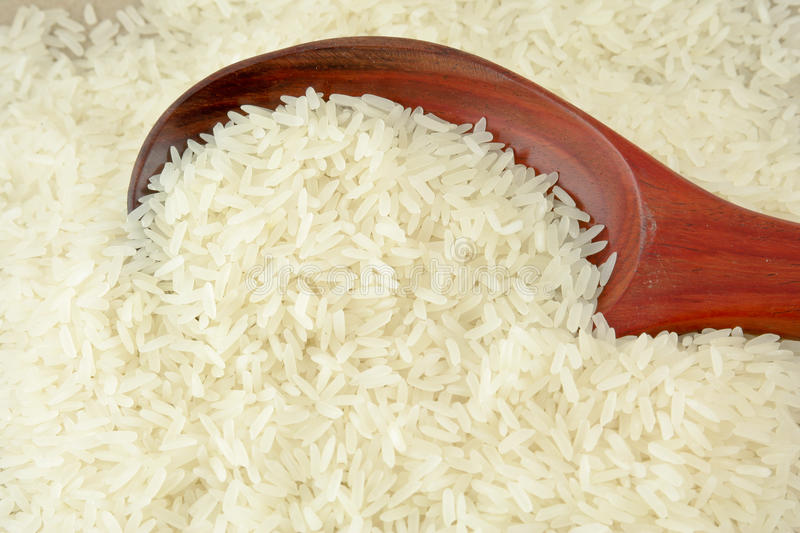
Jasmine rice promotes healthy pregnancy, fights cancer
In Ghana, many people eat white rice. What many people do not know is that white rice comes in different forms. Many people also buy any type irrespective of the brand. In this article, I aim to inform you of the importance of this particular brand called jasmine. Jasmine and white rice are the most popular. They are quite similar, with some notable differences.
Jasmine rice got its name from the fragrant jasmine flower. Jasmine rice is an aromatic, long-grain rice that is favoured for its unique taste and texture. Native to Thailand, Cambodia, Vietnam, and Laos, this popular ingredient is also prominent in southeast Asian cuisine and can be spotted in dishes ranging from curries to stir-fries. Other types of white rice are, basmati, arborio, jasmine, and originario, they are all very similar nutritionally.
Advertisement
Jasmine rice is also nutritionally loaded including manganese, folate, selenium and iron. Whole grain varieties has more benefits, including improved heart health, decreased oxidative stress and protection against chronic diseases.
Jasmine is a bit shorter and thicker than other types of rice, such as basmati, and has a clingy texture that makes it well-suited for eating with chopsticks. It also has a unique signature scent, which is due to the plant’s natural production of aromatic compounds such as 2-acetyl-1-pyrroline.
This compound is also found in other foods, such as white bread and basmati rice, and is said to have a scent similar to hot buttered popcorn.
Like other types of rice, both white and brown jasmine rice are available. While white rice has undergone processing to remove the bran and germ, brown rice is a whole grain that contains all three parts of the rice grain.
Roy et al. ( 2011) study agrees that all white rice is processed, meaning that the husk (hard protective shell), bran (outer layer), and germ (inner core) have been removed. Another study by Dipti,et al. (2012 found that the processed white rice deprived of its fibre and diverse nutrients. The United States of America Department of Agriculture reports that white rice and jasmine have the following nutrients in a 1-cup (140-gram) serving of cooked rice:
Also, other white rice naturally contains small amounts of zinc, magnesium, manganese, copper and B vitamins.
Guerrero et al. (2009) underscored that due to a loss of nutrients during processing, producers now add iron, thiamine (vitamin B1), niacin (vitamin B3), and folate to white rice.
Jasmine rice, science
Though jasmine rice is high in carbs and calories, it is linked with diverse health benefits eaten in moderation as part of a balanced diet.
One study by Abbaspour et al.(2014) found that iron is an important mineral that is involved in a number of metabolic processes in the body, including Deoxyribonucleic Acid (DNA) synthesis, oxygen transport and red blood cell production. Jasmine rice is loaded with iron with 11 per cent of the recommended value packed. This is beneficial to pregnant women.
Jasmine rice is loaded with antioxidants. For instance, one study by Avila et al. (2013) found that jasmine is also high in manganese, an essential mineral that acts as an antioxidant and plays a key role in health and disease.
One study by Pintha et al. (2014) found that some specific varieties such as red, purple and black rice could have higher antioxidants to avert in disease. The in vitro study conducted in Thailand, for instance found that red jasmine rice might reduce cancer cell growth, this is due to the content of helpful compounds, such as phenolics, oryzanol, tocotrienol and tocopherol.
Jasmine, heart health
Brown jasmine rice is regarded a whole grain, this means that all three parts of the rice kernel are embedded in it. One large systematic review of 45 studies by Aune et al.(2016) found that adding whole grains in the diet could help improve overall heart health. The study further found that eating at least three servings of whole grains per day was associated with a lower risk of heart disease. Additionally, an earlier study by Fang et al, (2015) linked whole grain consumption to a lower risk of stroke as well.
Another key difference between brown jasmine rice versus white rice is the fibre content. It has been found that since brown rice contains more fibre, it may possibly help reduced levels of cholesterol and blood pressure (Anderson et al. 2009).
Jasmine, Cancer
One study by Makarem et al.(2016) agrees that eating more whole grains such as jasmine rice and brown rice might perhaps decrease the risk of cancer.
Due to the higher fibre content in brown rice, one study by Kunzmann et al. (2015) found that eating fibre enrich diet may avert some types of cancer specifically colorectal, ovarian, head and neck, and breast cancers.
Jasmine, promotes healthy pregnancy
One article by Rachel, Link(2020) explains that jasmine rice nutrition profile is full with folate, knocking out nearly a quarter of the recommended daily value in a single cup. Folate, also known as vitamin B9, becomes especially important during pregnancy as it plays a central role in foetal growth and development.
Warning
While jasmine rice can be an excellent addition to a balanced diet for most, there are some risks and side effects that need to be considered as well.
For starters, it’s best to opt for brown jasmine rice over white rice whenever possible. Not only is brown rice much less processed, but it also retains a higher amount of fibre and beneficial nutrients.
The Writer has strict sourcing guidelines and relies on peer-reviewed studies, academic research institutions, and medical associations to justify his write-ups. His articles are for educational purposes and aimed at educating the public on evidence-based scientific Naturopathic Therapies and do not serve as medical advice for treatment.
He is a Professor of Naturopathic Healthcare/President of NyarKotey College of Holistic Medicine&Technology(NUCHMT)/African Naturopathic Foundation.
E-mail: [email protected]



